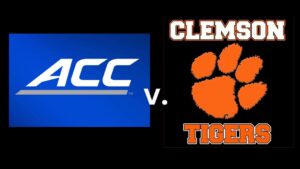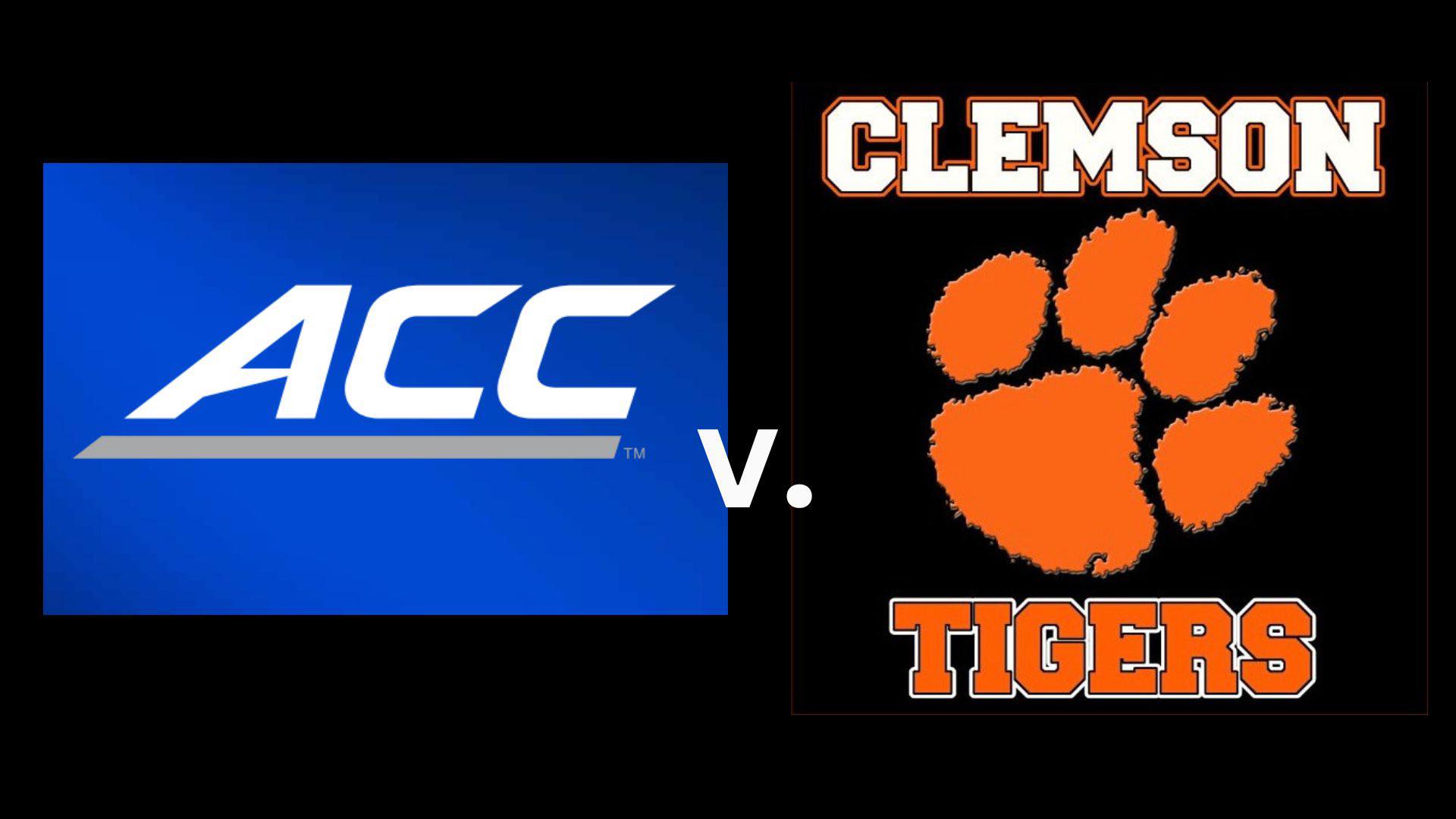A North Carolina judge denied Clemson’s motion to dismiss the case of the ACC v. Clemson on Wednesday (7/10).
Following last week’s hearing on the motion, Judge Louis Bledsoe III had committed that he would render his decision and written order, prior to this week’s hearing in South Carolina on Clemson v. ACC. That is scheduled to begin Friday (7/12) morning. Bledsoe also dismissed Clemson’s motion to stay the case.
The Bottom Line of the Case
The hearing, briefs, and motions are a fight over jurisdiction. To this point, it is about whether the case should be heard in Charlotte, (where the ACC is headquartered), or left to a South Carolina court, within the jurisdiction of Clemson University. Like Florida State’s previous efforts, the school’s motion to dismiss was based on sovereign immunity and personal jurisdiction.
This case, however, with the ACC as the plaintiff, is for breach of contract, alleged by the conference against the school. It is not the primary case to decide if Clemson can leave the ACC and abandon the Grant of Rights while maintaining its media rights in another conference. But success in a breach of contract case could be a tool to stop Clemson from being able to leave.
The Ruling
Judge Bledsoe’s 53-page ruling recites much of the ACC’s purpose for creating the Grant of Rights, as well as the 2016 extension, which took the agreement from 2027 to 2036.
He pointed out that legal action was already taken by Florida State against the ACC, and by the conference against the school. Further, he reiterated what was relayed in last week’s hearing about Clemson and the ACC negotiating at the beginning of 2024.
“While these parallel actions were pending, the ACC alleges that ‘Clemson indicated a desire to work with the Conference regarding its own membership in the Conference and requested assurances of confidentiality and protections that the ACC would not file suit against it.’ The ACC avers that it ‘agreed to work with Clemson, seeking a business solution being documented, and without provocation by the ACC,’ Clemson initiated litigation against the ACC on 19 March 2024 by filing suit in Pickens County, South Carolina.”
At the hearing, attorneys for Clemson pointed out that they were under no legal obligation to continue the talks if they felt they were not fruitful. The ACC filed its breach of contract lawsuit against Clemson the day after the Pickens County filing.
The FSU Factor in the Ruling
The judge wrote that because the conference is governed by the Uniform Unincorporated Nonprofit Association Act, “It permits the ACC, as a North Carolina unincorporated nonprofit association, and Clemson, as a Member of the ACC to bring suit against each other.”
Bledsoe further explained in the written order that this ruling is consistent with what he ruled in Florida State’s motion to dismiss the ACC lawsuit against the school. “As this Court recently explained in the FSU Order, the appropriate Rule for consideration of a motion to dismiss on the grounds of sovereign immunity has been somewhat unsettled in North Carolina.”
Potential Appeal
Because the North Carolina cases, with the ACC as the plaintiff, are being heard in Complex Business Court, North Carolina law allows an applicant to skip the rest of the appellate process and go straight to the state supreme court. After losing its motion last month, Florida State has made it clear it intends to do that. Clemson’s legal counsel has yet to indicate its next move.
The docket calendar for the North Carolina Supreme Court is such that it is unlikely either appeal would be heard before next Spring. If Clemson does opt to appeal to the state supreme court, it likely will file a motion with Judge Bledsoe’s court to cease all further proceedings in the case pending the appellate outcome. Florida State successfully filed the same motion last month, essentially bringing to a halt all elements of that case for the time being.
Clemson Gets Some Wins
The ruling was not a total loss for Clemson. The judge granted Clemson’s motion to dismiss the ACC’s request for relief. He did so because the ACC’s claim is based on the Grant of Rights agreements being based on, “Valid and binding contracts.” The judge said no judicial decision on the validity of the contracts would be forthcoming in this ruling. But he dismissed the ACC claim without prejudice, meaning they can re-file it.
Judge Bledsoe also granted Clemson’s motion to dismiss the claim by the ACC that it was owed relief due to an alleged breach of fiduciary responsibility by the school toward the conference. That was dismissed with prejudice, meaning the ACC cannot resubmit that complaint.
What’s Next
Clemson has 30 days to file, with Judge Bledsoe’s court, a notice of intent to appeal his ruling.
The matter of Clemson v. ACC has a scheduled hearing in Pickens County, South Carolina on Friday (7/13). Judge Perry Gravely will preside. He is the resident judge for the 13th Circuit Court of South Carolina. The state does not have Complex Business Courts for such cases. The hearing will center on the ACC’s motion to dismiss Clemson’s lawsuit. Its lawyers will argue that the case should be deferred to North Carolina courts.







